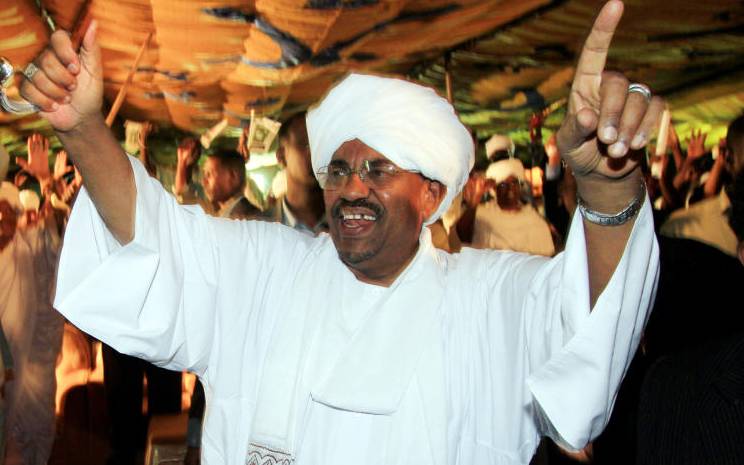
Sudan's President Omar Hassan al-Bashir waves to supporters at the NCP Headquarters in Khartoum, Sudan April 26, 2010. [REUTERS]
The ouster of Omar al-Bashir in the Sudan has exposed Africa’s leadership underbelly. For many people, Bashir’s fall can only be termed as good news. Bashir was a mistake that should not have happened in the first place, but which became a disaster in the long run. Having seized power through a coup three decades ago in 1989, Bashir’s leadership was marked by serious human rights violations and extreme dictatorial tendencies. He was indicted by the International Criminal Court (ICC) in The Hague for the genocide in Sudan’s Darfur region.